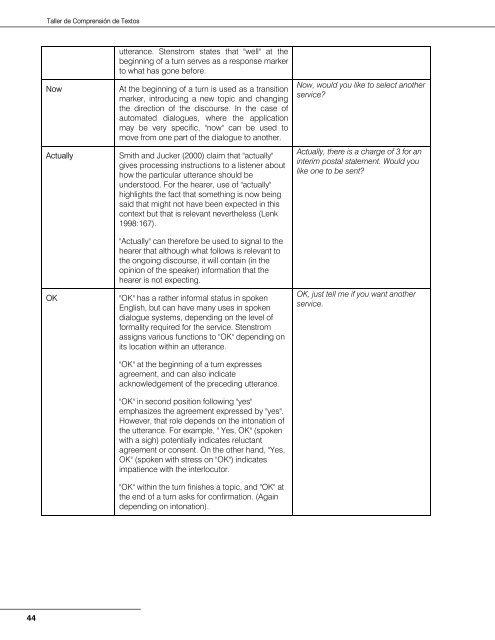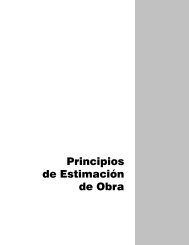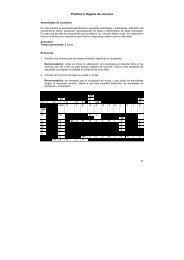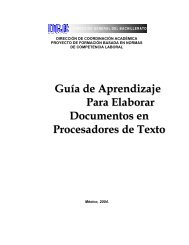Taller de Comprensión de Textos I - Colegio de Bachilleres del ...
Taller de Comprensión de Textos I - Colegio de Bachilleres del ...
Taller de Comprensión de Textos I - Colegio de Bachilleres del ...
You also want an ePaper? Increase the reach of your titles
YUMPU automatically turns print PDFs into web optimized ePapers that Google loves.
44<br />
<strong>Taller</strong> <strong>de</strong> <strong>Comprensión</strong> <strong>de</strong> <strong>Textos</strong><br />
utterance. Stenstrom states that "well" at the<br />
beginning of a turn serves as a response marker<br />
to what has gone before.<br />
Now At the beginning of a turn is used as a transition<br />
marker, introducing a new topic and changing<br />
the direction of the discourse. In the case of<br />
automated dialogues, where the application<br />
may be very specific, "now" can be used to<br />
move from one part of the dialogue to another.<br />
Actually Smith and Jucker (2000) claim that "actually"<br />
gives processing instructions to a listener about<br />
how the particular utterance should be<br />
un<strong>de</strong>rstood. For the hearer, use of "actually"<br />
highlights the fact that something is now being<br />
said that might not have been expected in this<br />
context but that is relevant nevertheless (Lenk<br />
1998:167).<br />
"Actually" can therefore be used to signal to the<br />
hearer that although what follows is relevant to<br />
the ongoing discourse, it will contain (in the<br />
opinion of the speaker) information that the<br />
hearer is not expecting.<br />
OK "OK" has a rather informal status in spoken<br />
English, but can have many uses in spoken<br />
dialogue systems, <strong>de</strong>pending on the level of<br />
formality required for the service. Stenstrom<br />
assigns various functions to "OK" <strong>de</strong>pending on<br />
its location within an utterance.<br />
"OK" at the beginning of a turn expresses<br />
agreement, and can also indicate<br />
acknowledgement of the preceding utterance.<br />
"OK" in second position following "yes"<br />
emphasizes the agreement expressed by "yes".<br />
However, that role <strong>de</strong>pends on the intonation of<br />
the utterance. For example, " Yes, OK" (spoken<br />
with a sigh) potentially indicates reluctant<br />
agreement or consent. On the other hand, "Yes,<br />
OK" (spoken with stress on "OK") indicates<br />
impatience with the interlocutor.<br />
"OK" within the turn finishes a topic, and "OK" at<br />
the end of a turn asks for confirmation. (Again<br />
<strong>de</strong>pending on intonation).<br />
Now, would you like to select another<br />
service?<br />
Actually, there is a charge of 3 for an<br />
interim postal statement. Would you<br />
like one to be sent?<br />
OK, just tell me if you want another<br />
service.
















